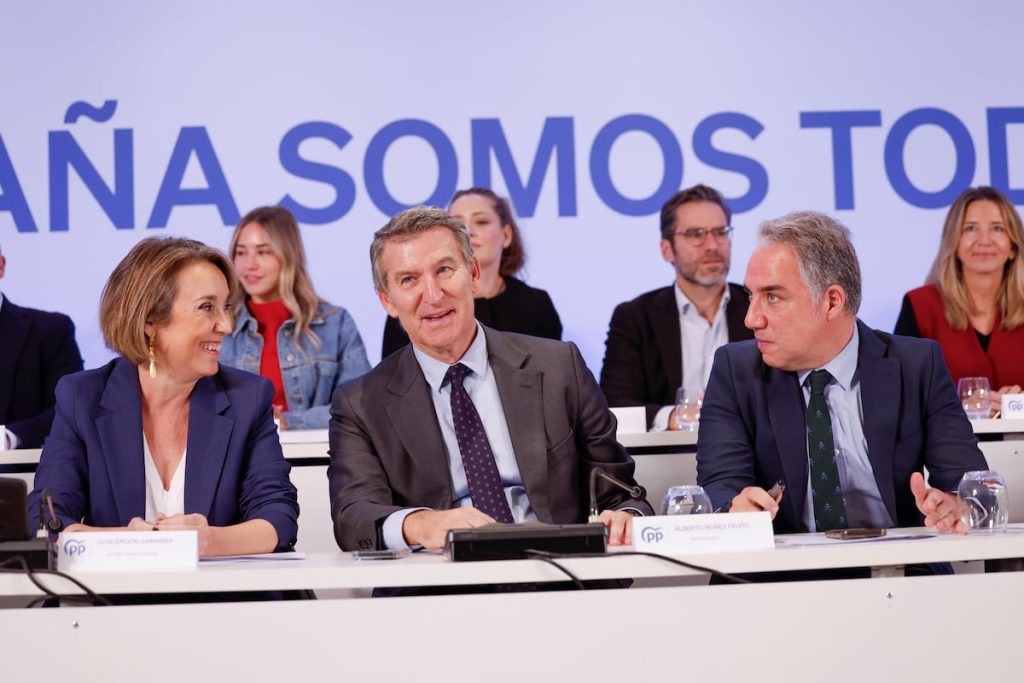The leader of the PP, Alberto Núñez Feijóo, presided over the National Executive Committee of his party in Madrid on Monday, accompanied by the party’s secretary general, Cuca Gamarra, and the general coordinator, Elías Bendodo. This meeting marked the first internal gathering of all the regional leaders of the PP following the unrest caused by Isabel Díaz Ayuso’s refusal to meet with Pedro Sánchez. Ayuso, the president of the Community of Madrid, justified her absence by stating that she did not want to normalize what was not normal or give her approval at La Moncloa. Despite this, there was no confrontation at the meeting with the barons of the PP, as some leaders were absent due to scheduling conflicts. In his speech, Feijóo called for internal unity, emphasizing the importance of Spain and urging to stop attempts to divide.
Some of the notable absences at the meeting included leaders such as Juan Manuel Moreno Bonilla of Andalusia and Carlos Mazón of the Valencian Community. Reasons for absence ranged from scheduling conflicts to personal reasons, with some leaders denying any political motivation related to Ayuso. Despite this, the party managed to avoid a potential crisis after Ayuso’s actions had caused discomfort internally. The barons had refrained from commenting on the issue publicly, but privately expressed their discontent with Ayuso’s behavior. The meeting on Monday was somewhat lackluster due to the absence of key leaders, and Feijóo used the opportunity to indirectly address Ayuso’s stance by emphasizing the unity of the communities governed by the PP in Spain.
The PP opted to focus on external issues, such as the case of Errejón, the accusations of sexual assault, and misogynistic behavior against the former spokesperson for Sumar. The party plans to use these issues to undermine the progressive government, but does not intend to launch a full offensive at the moment. The PP points fingers at Vice President Yolanda Díaz and Health Minister Mónica García for allegedly knowing about Errejón’s behavior and covering it up. However, they do not believe that the ministers will be removed from their positions as a result. The party sees an opportunity to capitalize on the government’s declining credibility in feminist causes due to the scandal, although this may not necessarily translate into increased support for the PP among feminist voters.
Feijóo expressed support for women victims of sexual assault during the meeting but did not explicitly reference Errejón, only briefly touching on the issue. The PP faces contradictions in dealing with gender-based violence, as evidenced by their defense of individuals accused of sexual harassment in the past. Some party members defended the tenor Plácido Domingo after he was accused of sexual harassment by multiple women. The party also faced criticism for its handling of a Vox member who had been convicted of psychological abuse. These contradictions highlight the challenges the PP faces in addressing gender-based violence while maintaining party unity and supporting individuals within their ranks who face accusations of misconduct.















